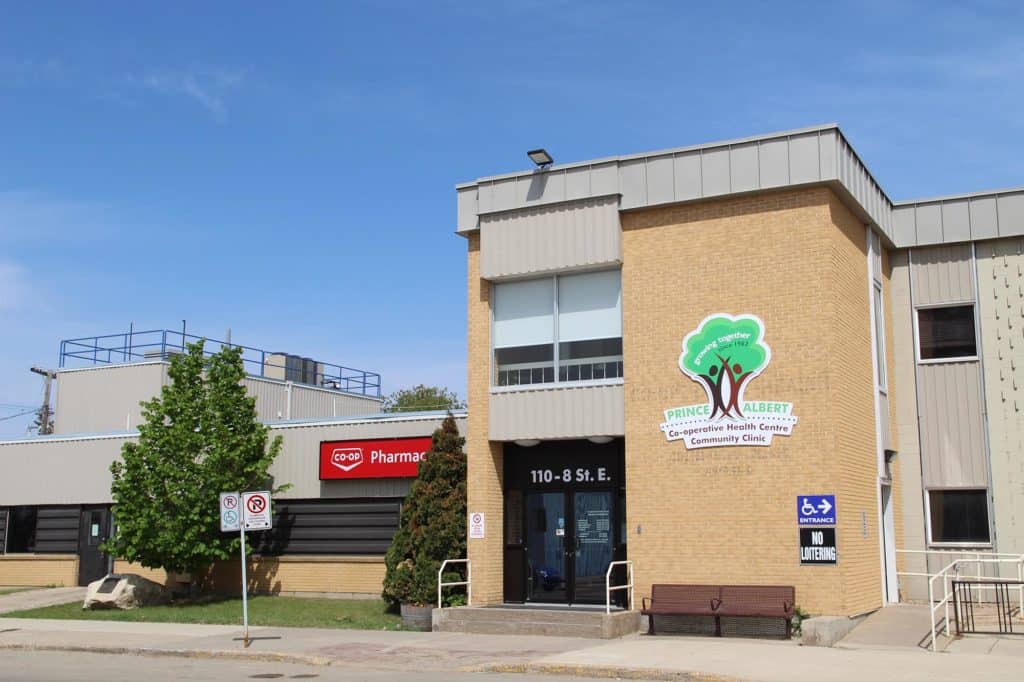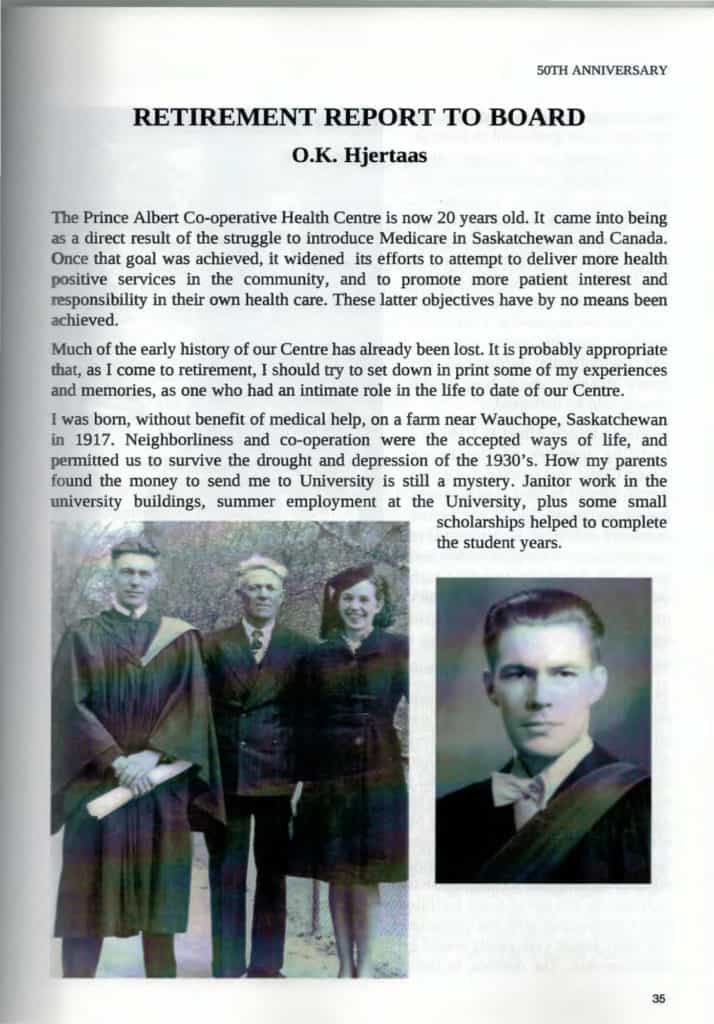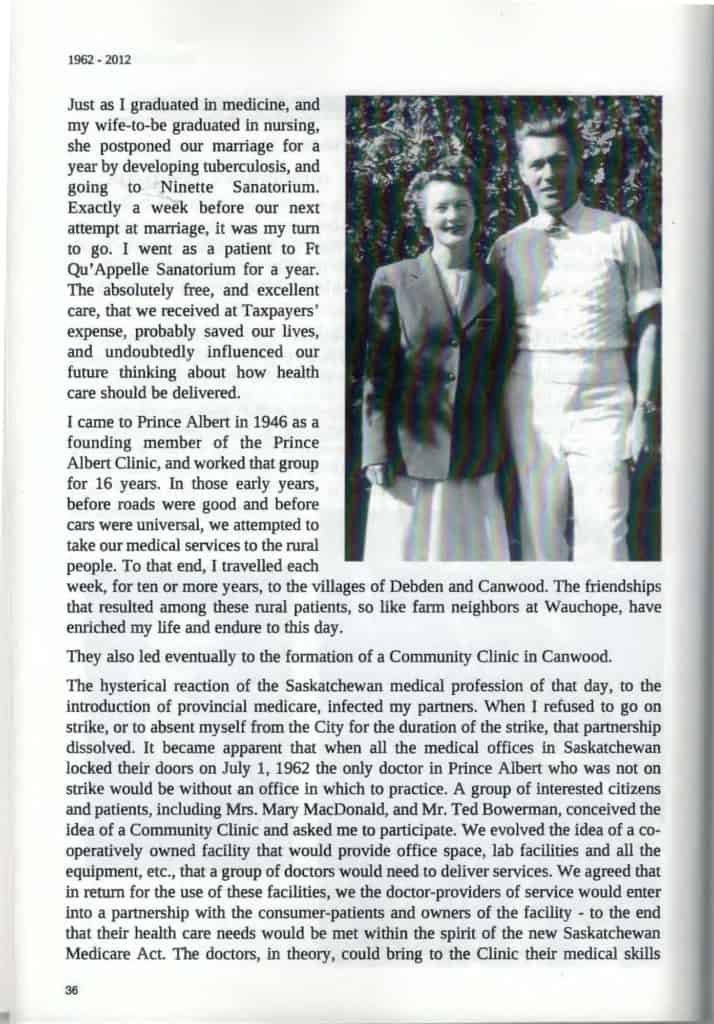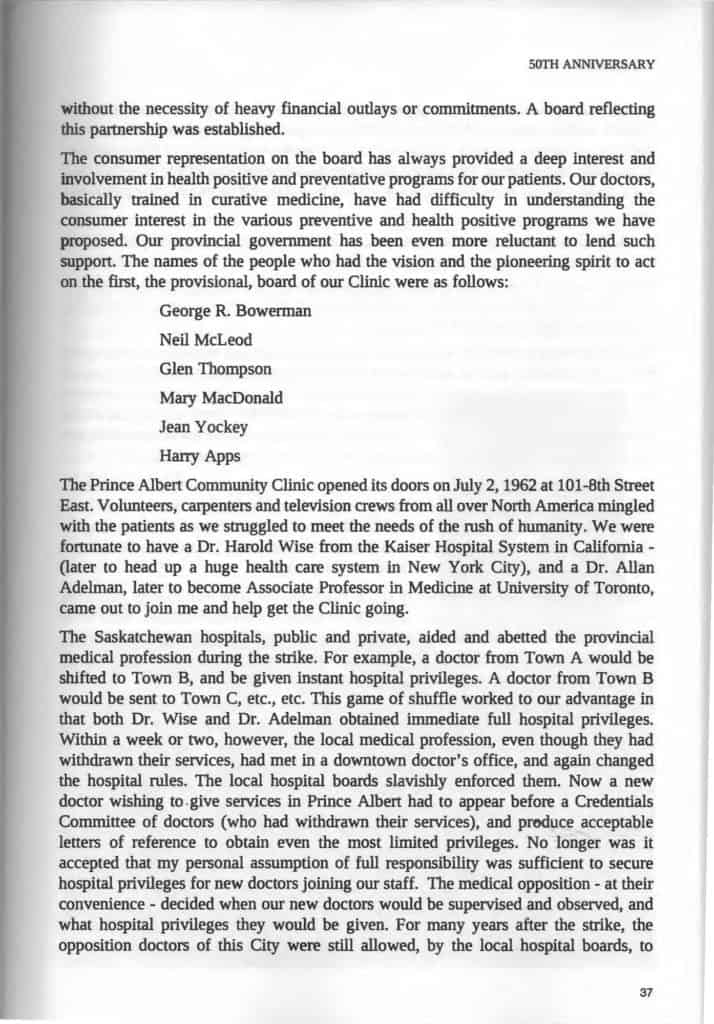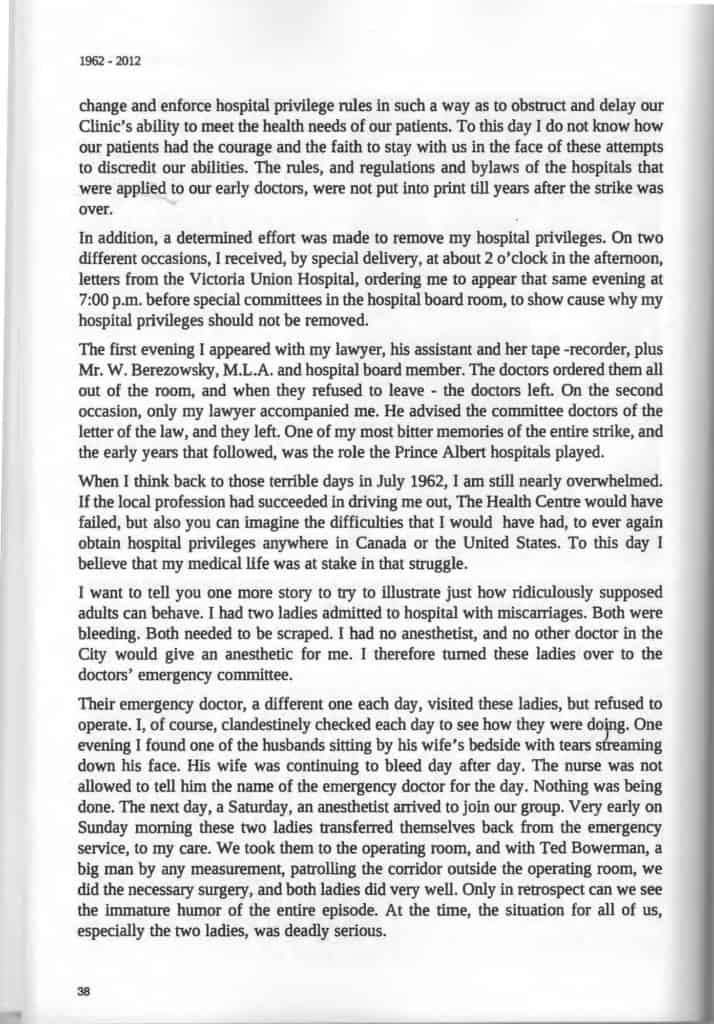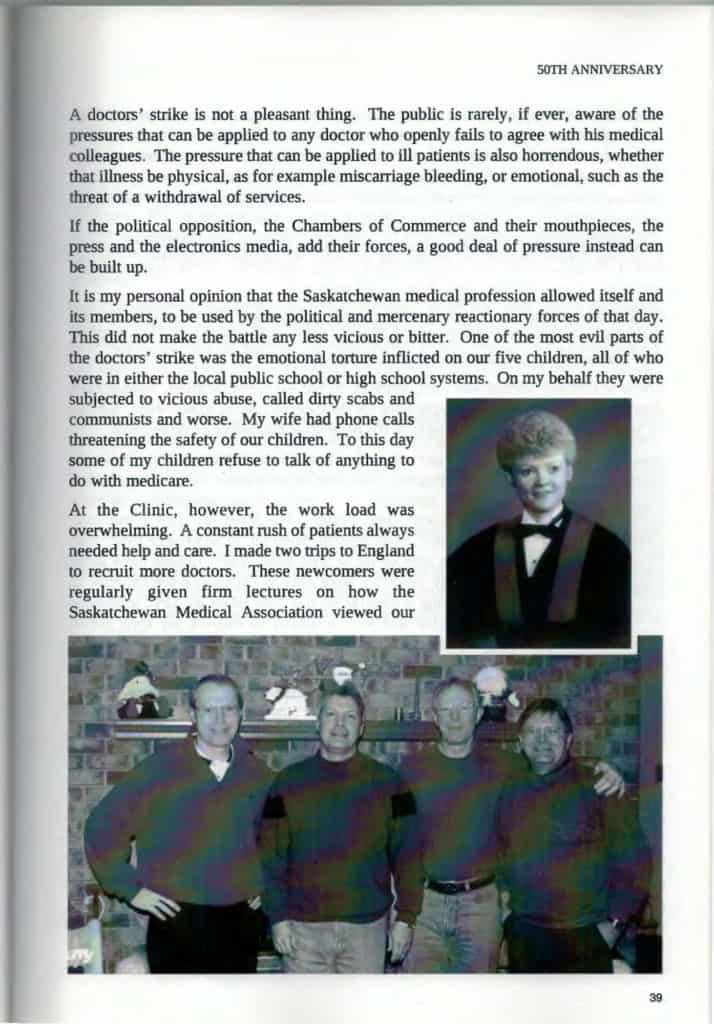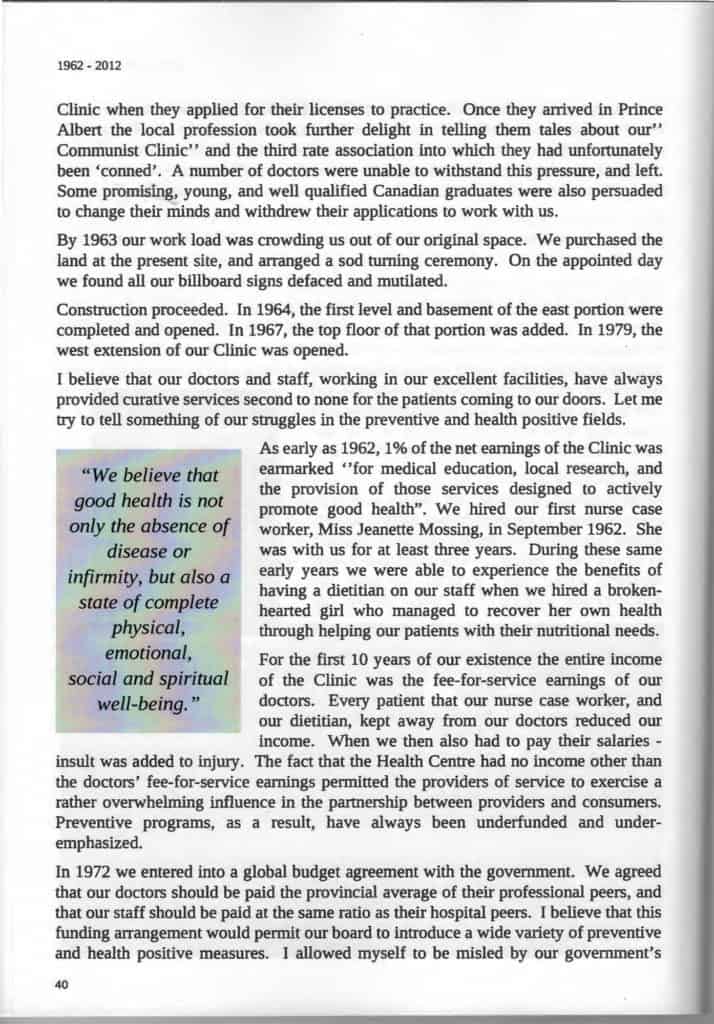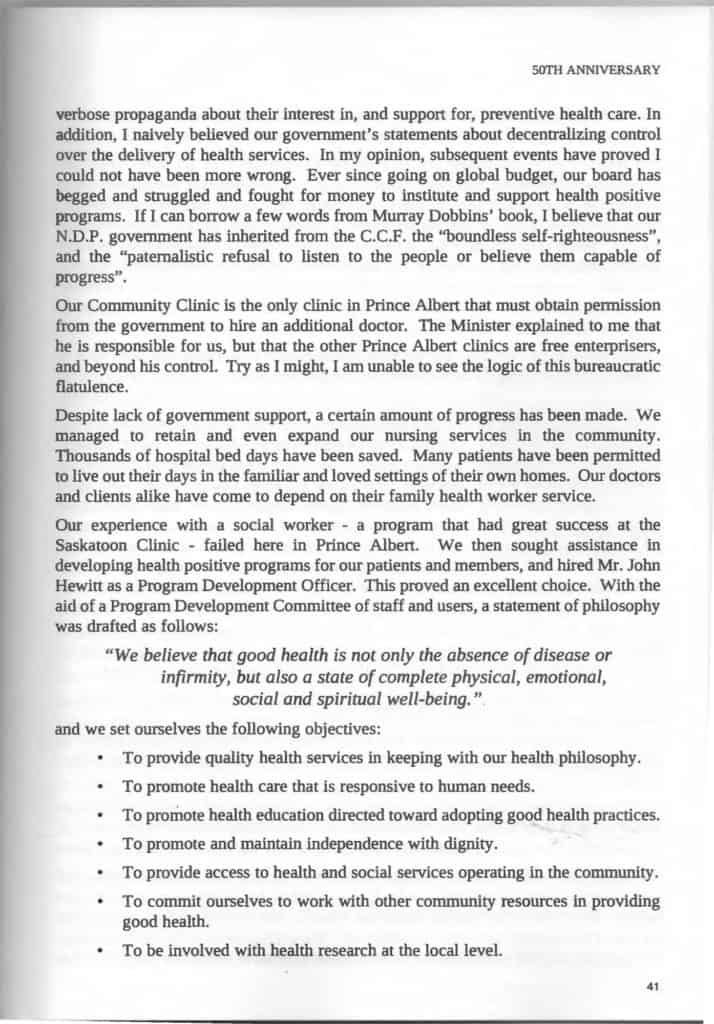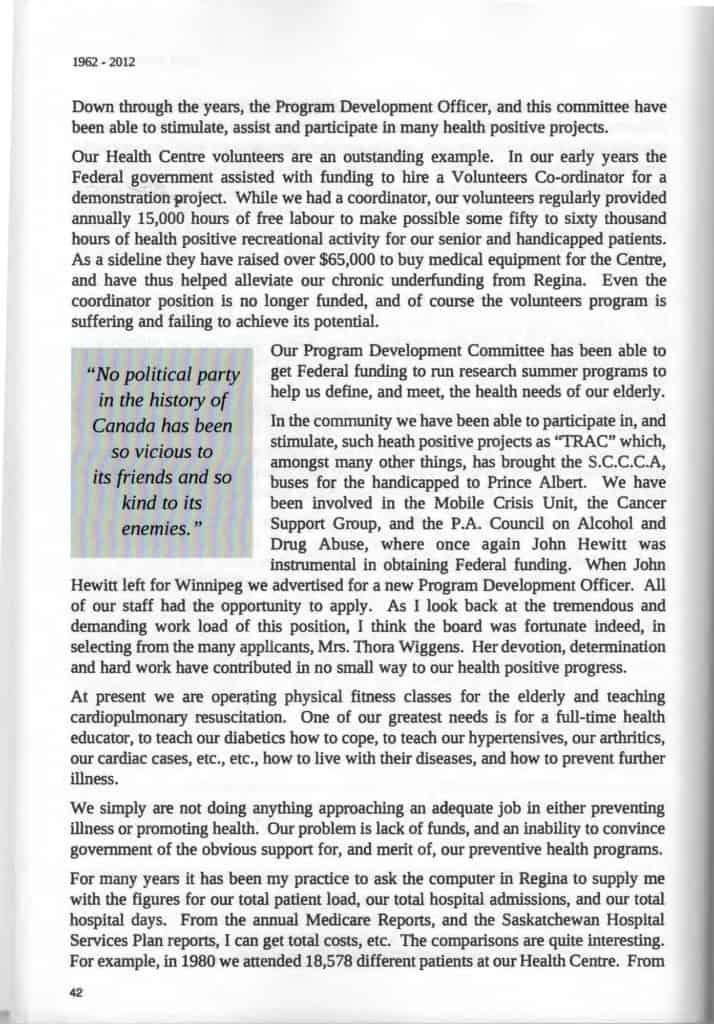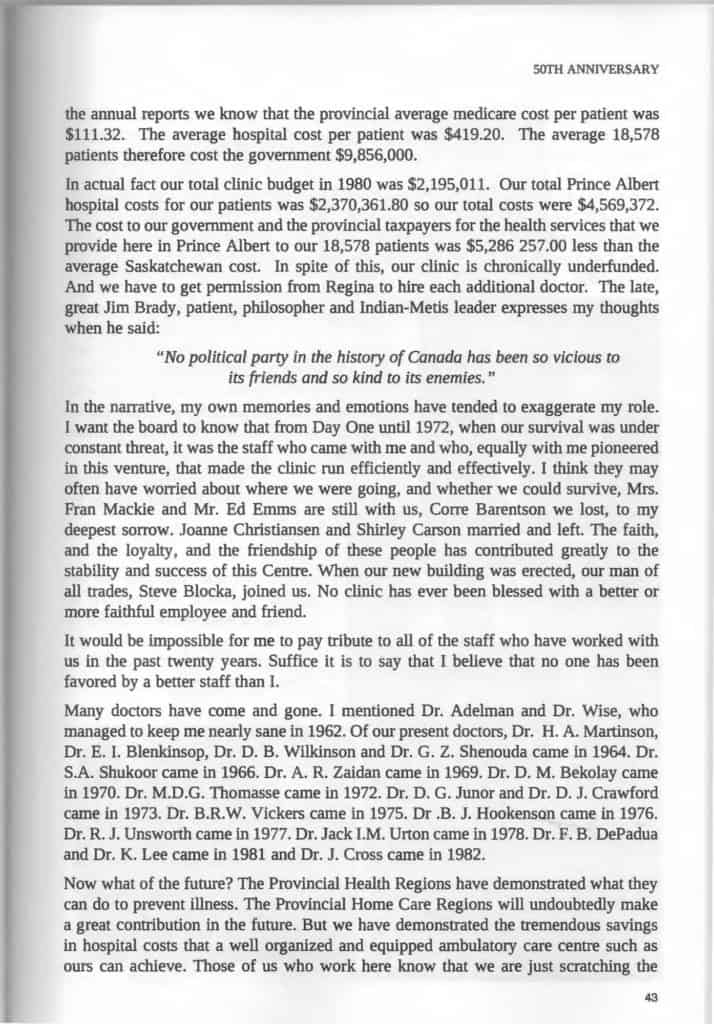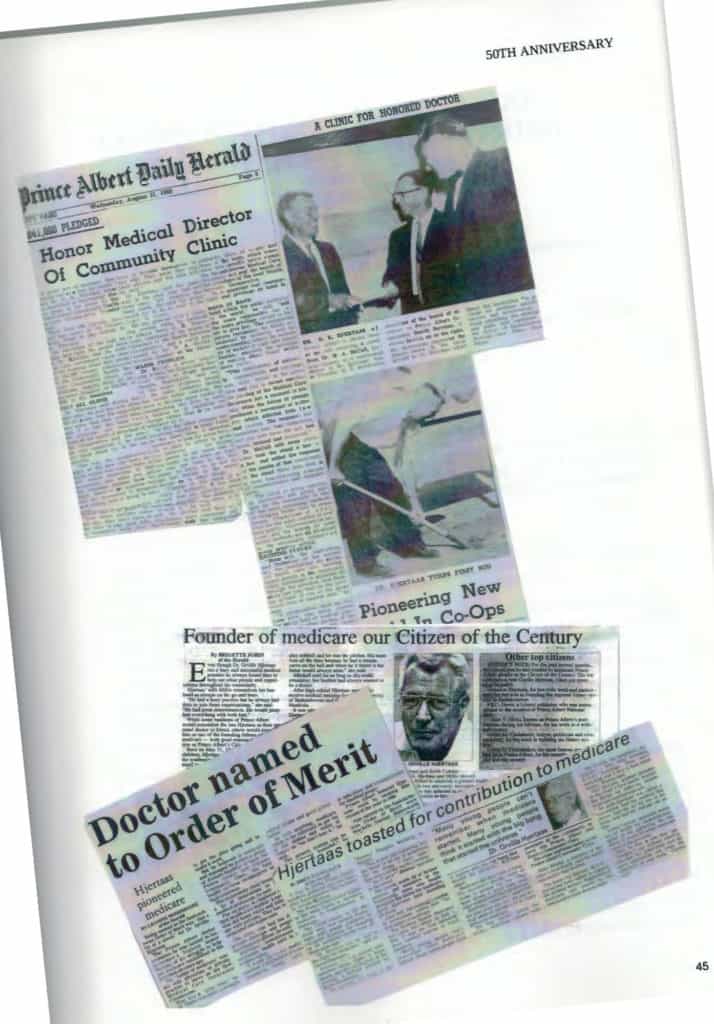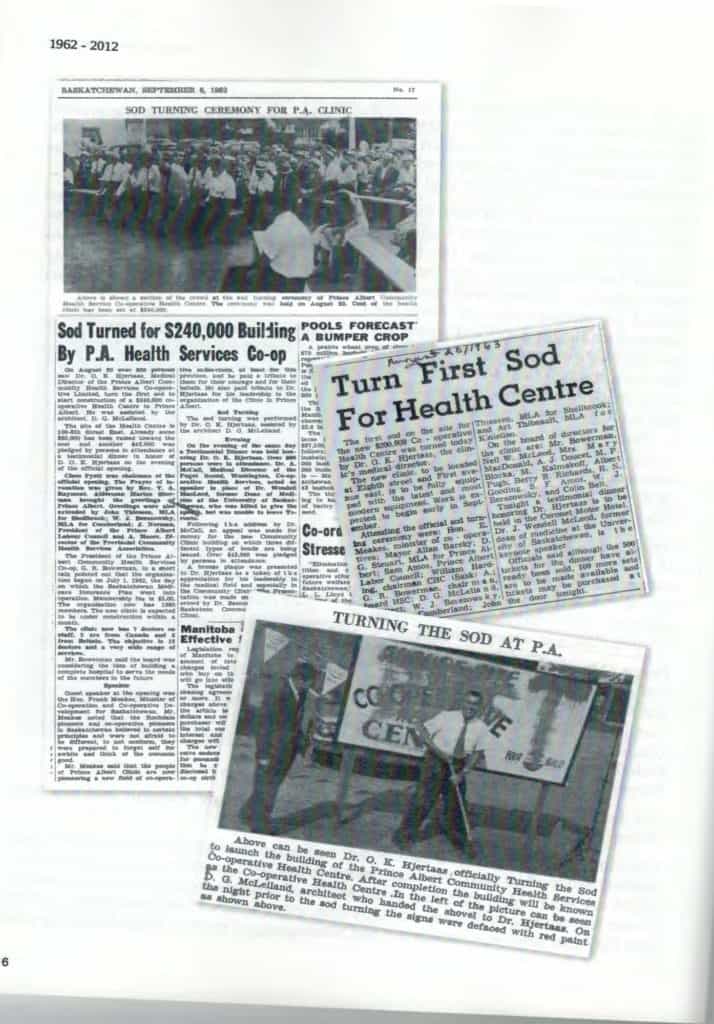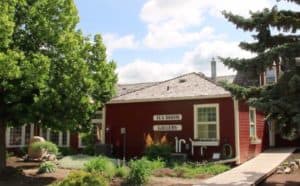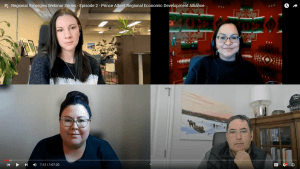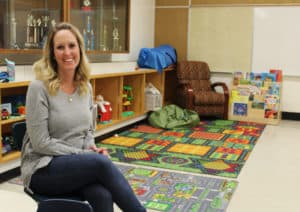For those of you who haven’t experienced Saskatchewan’s gateway to the north, I should start by saying Prince Albert is as beautiful as it is complex. The city is the last major centre in the province as you head north, and rests at the edge of a boreal forest. The city has numerous growing and developing First Nations in the area, a national park and one of its primary industries, forestry, has struggled after the loss of a major pulp mill a few years ago. The combination makes PA a place unlike anywhere else.
The result of this unique blend of history, economics and geography is a city full of grit, independence and determination. And, over time, that character has led to the creation of quite a few co-ops.
Earlier this month, Tanner and I traveled to Prince Albert to check out two of these co-operatives – both of which address different health care needs in the community. Health co-ops are not super common in Saskatchewan. So, we set out to find out why folks in PA felt they needed a few.
First, we wanted to get a sense of PA’s most pressing health concerns and found out that the mayor is a big advocate for local healthcare. What better person to ask?
When we visited him at City Hall, Mayor Greg Dionne told us about PA’s unique healthcare challenges. One is making sure that seniors and impoverished residents have access to services. The second is that the province only bases its funding on the population of PA – it doesn’t take into account the number of people from northern communities that also access its health services. This means the city’s healthcare providers are underfunded in comparison to the actual population they serve.
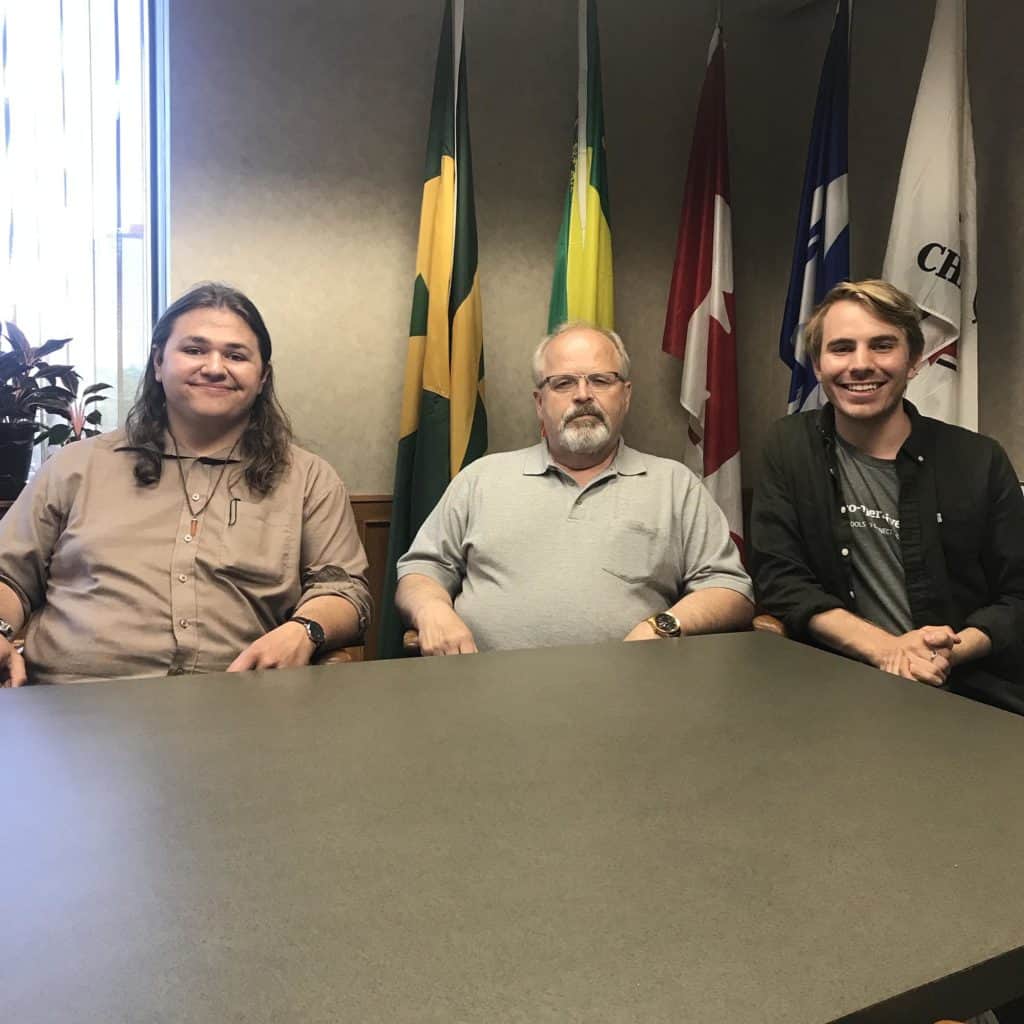
Because of these issues, the Mayor said the two co-ops we had in our sights — the Prince Albert Co-operative Health Centre Community Clinic and the Mobile Crisis Unit Co-operative — are essential. He gave both glowing reviews, saying they help relieve the pressure on other essential services in the community. For the Mobile Crisis Unit Dionne appreciates how the unit supports their police force, and praised them for the nature of the work they do.
“They deal with all kinds of crises,” Dionne said. “So I give them the biggest praise because they are the frontline workers.”
In praising the clinic, the mayor notes how they are well placed to serve vulnerable populations, such as seniors.
“They fill a big gap,” Dionne said. “The highest density of seniors in our community surrounds that cooperative health centre. They do all kinds of things …. We would be a different place without them.”
Prince Albert Co-operative Health Centre
At the PA Co-operative Health Centre, we met long-time member and volunteer Vickie Rose. Vickie is a force. At 84 years old, Vickie is not only an active volunteer – she also lives on her farm about 6 miles from the city, where she still plants a large garden every year.
One of her volunteer activities includes the Co-operative Health Centre Volunteers’ Foundation, which fundraises for the centre and provides other helpful activities, such as visiting patients in the clinic and at home. The foundation has raised over $800,000 over the years, and this funds a wheelchair-accessible van, examination tables, and other equipment.
She also donates much of the produce from her garden to sell at a market fundraiser for the clinic. What isn’t sold in the market, she puts in the free pantry the clinic has out front of the building. This year, she did it all herself, despite having two broken wrists!
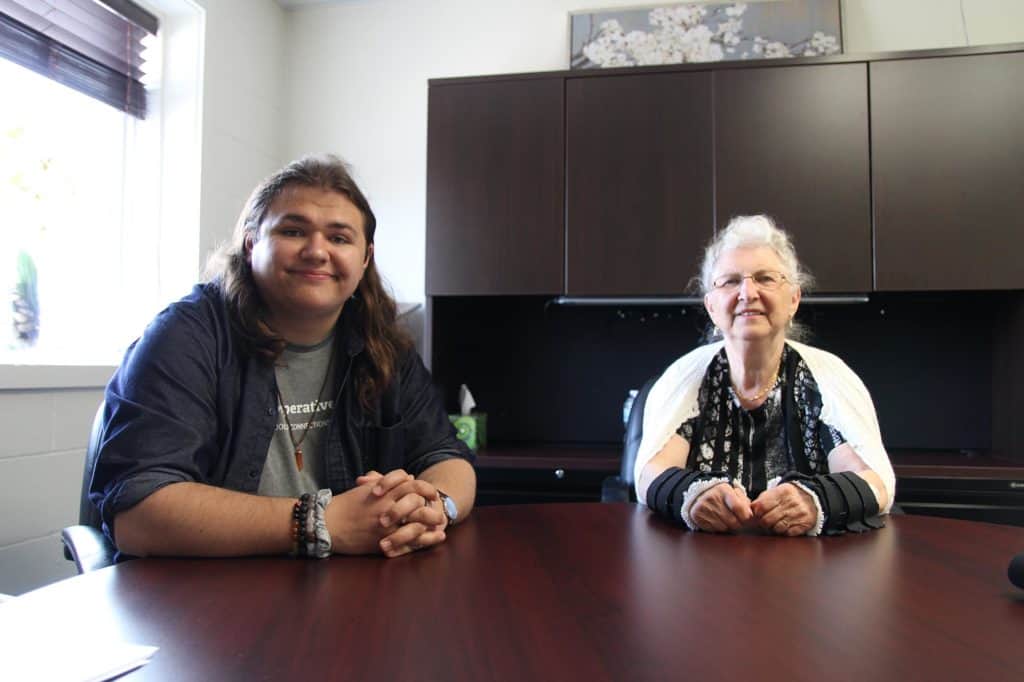
Vickie first came to the clinic in its early days to seek medical attention for one of her children. She said the co-op was her only option for healthcare in the city at the time, because of the contentious nature of healthcare back then.
The co-operative health clinic was opened as a direct response to the doctors’ strike in 1962. At the time, doctors were opposed to the idea of government-run healthcare. Mostly they felt it would interfere with their decision-making regarding patients and, in response, organized a strike to begin as Medicare was brought in.
Despite the strike, one doctor refused to stop offering healthcare services to the residents of PA. Dr. Orville K. Hjertaas founded the co-operative clinic to make sure people had access to healthcare – a decision that cost him his practice at the time. The new co-op clinic was vandalized, and his wife and kids were harassed by people who disagreed with his actions. Vickie described Dr. Hjertaas as a humanitarian who didn’t give up despite the backlash.
I was both sad and shocked to hear about the adversity Dr. Hjertaas and his family faced. The clinic offered us a book that details its history, including a description of the time in Dr. Hjertaas’ own words. As Vickie described his achievements, I began to get a sense of how his legacy shaped the clinic.
The centre takes a holistic approach to health care – they aim to take care of the whole person. This includes services like counselling, a pharmacy, a methadone clinic, physiotherapy, and as many medical procedures as possible. Vickie said having all these services under one roof means the clinic not only gives excellent and attentive care, it does it efficiently.
She also said these qualities come from the vision of the late Dr. Hjertaas, who cared deeply about his patients. She recalled a time when he diagnosed her with severe anemia and gave her iron supplements for free because she couldn’t afford them.
I got the sense that Vickie is at the heart of this centre. She serves the clinic as a bright beacon of knowledge and history of its workings in addition to her volunteer work — which she describes in the clip below:
At the end of our interview, Vickie walked the halls chatting with friends and getting the scoop on all the latest at the clinic. She also treated us to a little tour and a bit more history, including showing us a bust of Dr. Hjertaas and the memorial trees planted out front for him and his wife Millie.
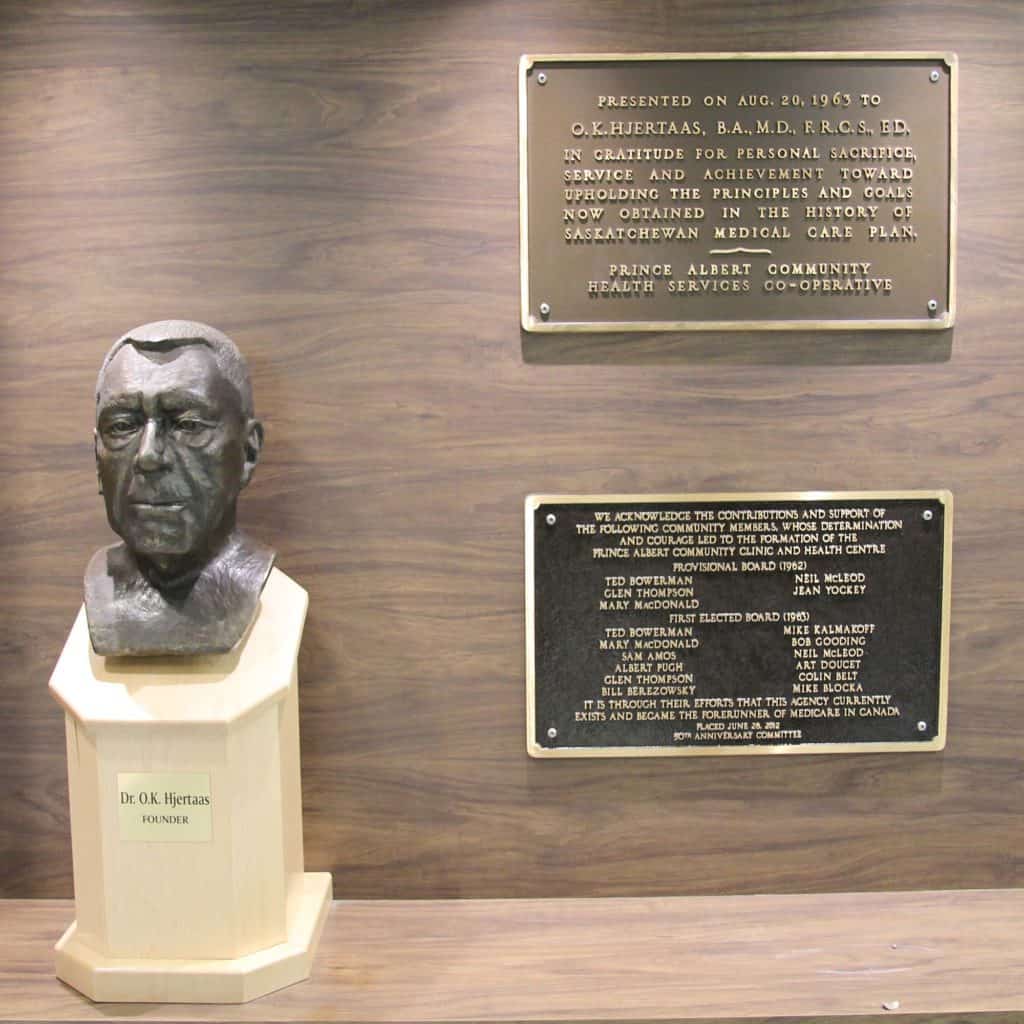
Executive Director Renee Danylczuk was also kind enough to give us a tour of the clinic. As she led us through the building, I got the sense of just how much gets done within its halls. As we went through their physiotherapy, IV therapy, and other facilities, I realized the entire building is purpose-built with their philosophy of attentive care in mind.
Even the way that doctors get paid at the centre helps promote this philosophy. Doctors are paid a salary – rather than being paid on a per-patient basis — meaning that there is no incentive to rush through appointments. I also noticed the quietness of the halls. The characteristic hustle and bustle of hospitals was missing. Talking to Renee, and seeing the facilities for myself, proves Vickie’s description of the care she receives is rooted in the thoughtful organization of the clinic itself.
Renee is incredibly proud of the clinic, and mentioned their model is being used as a guiding tool for the Health Region — meaning all of these ideas that initially brought backlash to the clinic’s first doctor have influenced the greater healthcare landscape in Saskatchewan.
Thank you to Vickie, Renee and everyone at the Centre for your hospitality and for showing us how amazing you all are!
Prince Albert Mobile Crisis Unit
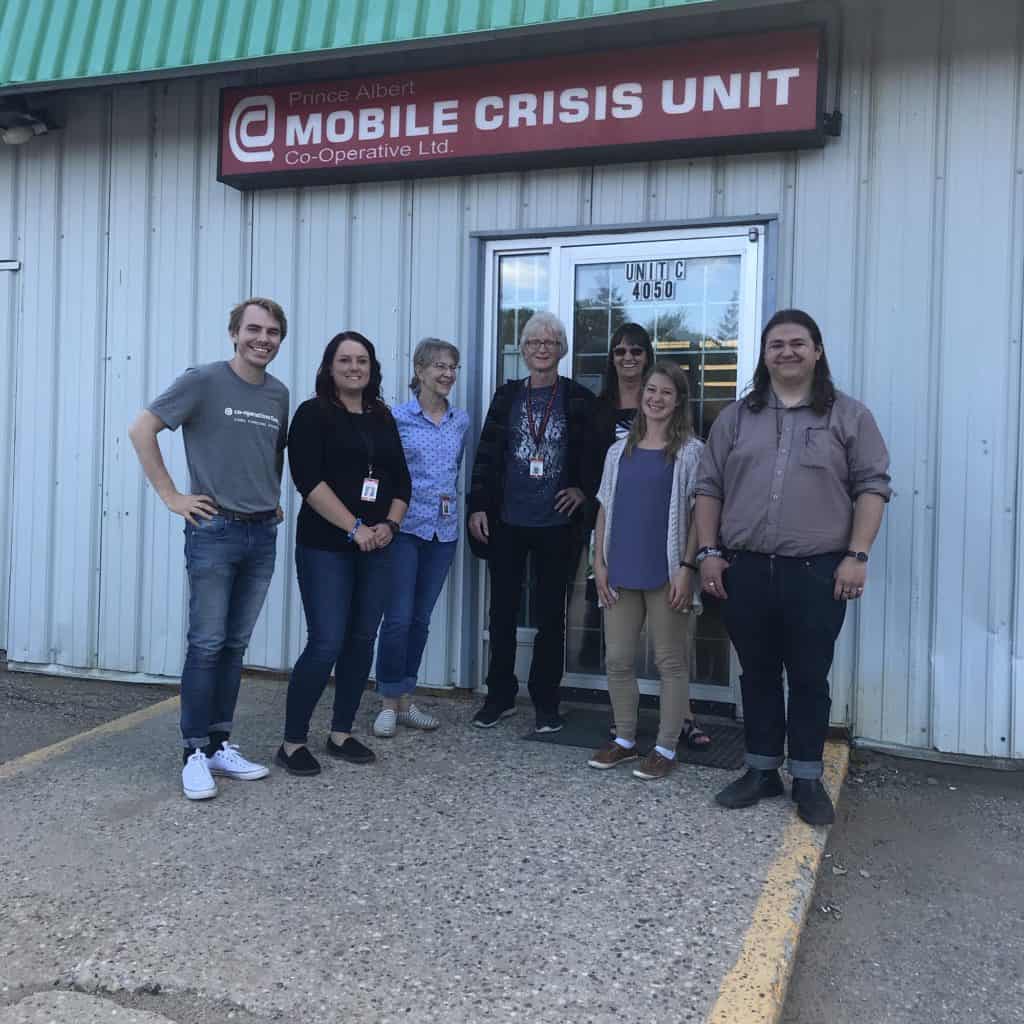
Another critical piece to Prince Albert’s healthcare is the Mobile Crisis Unit Co-operative. Operating largely outside of regular business hours, the unit bridges gaps in the treatment of mental health, sexual assault, and domestic abuse issues.
They do this by providing a hotline and sending support workers out to respond to calls from people in crisis within the city. The unit also teaches the community about consent, sexual assault, and provides training to police and EMS for handling situations surrounding sexual assault.
Executive Director Vicki Bird said when their support workers respond to a call, their goal is to meet with the person in crisis as early as possible in their environment. People often feel more comfortable on their home turf, rather than in a clinic setting. The crisis workers are non-threatening helpers. Rather than call attention to themselves and their positions, they use two unmarked vans to answer calls. They arrive in plain clothes, not uniforms. All of this helps their clients feel at ease.
What this co-op does is remarkable. Something that stuck out to me when talking to Vicki was the breadth of services they provide. From a wealth of trained professionals to a storage room full of essentials like diapers, formula, and dry foods, the unit is prepared to handle nearly anything thrown their way.
Thank you to Vicki and her team for taking us in and showing us what it takes to be there for someone in need.
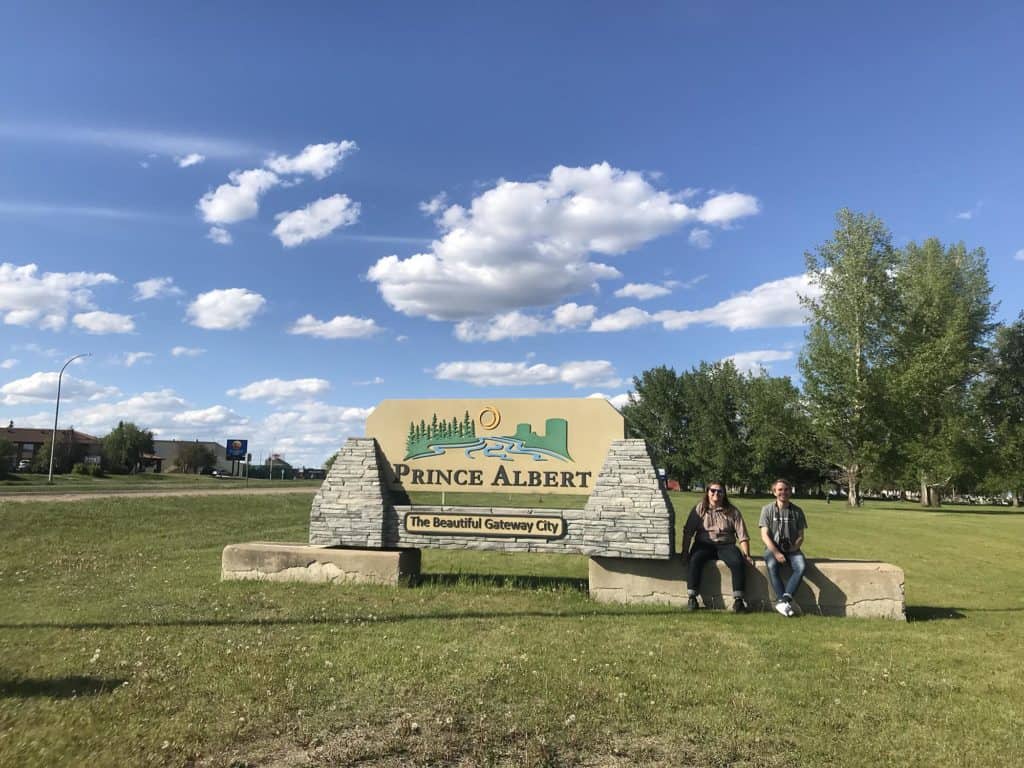
Prince Albert was a great way to kick off our travels in full and provided some excellent insight into how healthcare co-ops can fit into the greater landscape of services. See you on our next stop and be sure to keep up to date with our social media accounts!

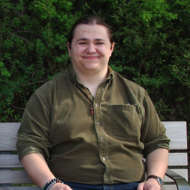 Written by
Written by 